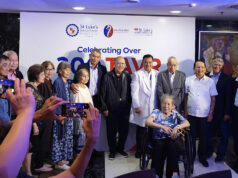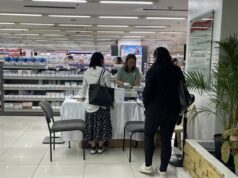
THE scramble for personal protective equipment (PPE) and face masks early in the pandemic has led to the opening of a Medical Textile Testing Center under the Department of Science and Technology – Philippine Textile Research Institute (DoST-PTRI) in Taguig City.
In an event held late December, the PTRI discussed the opening of the new institute and gave a virtual tour of its laboratories. “In the early days of the pandemic, we were faced with a massive global shortage of personal protective equipment,” said Celia Elumba, director of the DoST-PTRI. “This caught many off-guard, and in particular, exposed our healthcare workers to more risk than was necessary in the performance of their jobs to handle COVID-19 (coronavirus disease 2019) cases.”
PTRI resorted to submitting samples of face masks to foreign laboratories such as the South India Textile Research Association, because there was no local capability to test and evaluate the face masks based on globally recognized standards, according to Science and Technology Secretary Fortunato T. de la Peña.
The masks Mr. De la Peña referred to were the PTRI-developed REwear face masks, which were cloth masks that were washable, re-wearable, and reusable.
The tests were more expensive when done abroad; Ms. Elumba noted that it cost P220,000 for the masks to be tested overseas, not including logistics.
The new facility by the DoST-PTRI aims to halve the time and money needed to test medical equipment. Ms. Elumba noted that testing equipment locally could be completed in two to three weeks compared to four to six weeks overseas.
By April, the facility will be capable of conducting four of the five textile tests performed abroad. These include barrier testing, durability, toxicity, and construction for protective clothing; and tests for medical face masks, including bacterial filtration, differential pressure, synthetic blood penetration, particle filtration, absorbency, and permeability, among others.
The Medical Textile Testing Center may also be used for other purposes in the future. “We can expand it even more to other related industries,” said Donna Uldo, head chemist and deputy technical manager for PTRI Testing Services. This includes testing for health and hygiene products, occupational safety products, industrial textiles, and pollution safety products.
The idea of a facility for testing textiles for medical use was floated as early as 2016. The aim then was different: it was to test hygienic products such as cotton swabs and diapers. — Joseph L. Garcia



